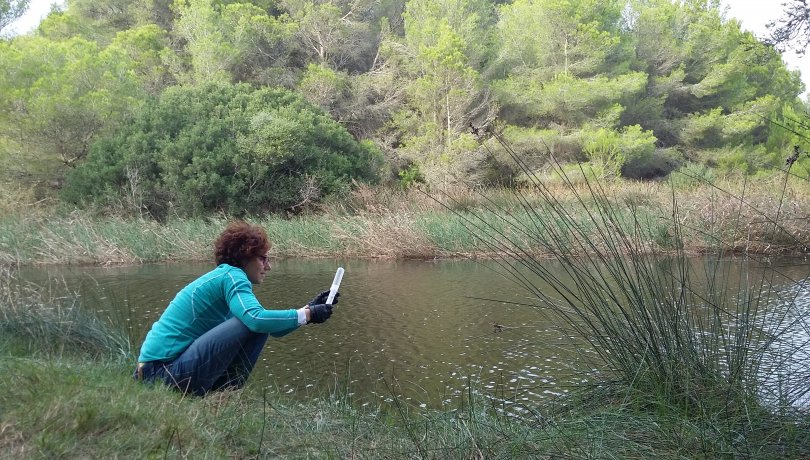The Raymond L. Lindeman Award honors a young scientist for an outstanding peer-reviewed, English-language paper in the aquatic sciences. The Association for the Sciences of Limnology and Oceanography (ASLO) has awarded Andrea G. Bravo, currently with a “Marie Sklodowska-Curie” post-doc position at the Institute of Marine Sciences (ICM-CSIC), the 2019 Lindeman Award for her paper, “Molecular composition of organic matter controls methylmercury formation in boreal lakes”.

The Raymond L. Lindeman Award honors a young scientist for an outstanding peer-reviewed, English-language paper in the aquatic sciences. The Association for the Sciences of Limnology and Oceanography (ASLO) has awarded Andrea G. Bravo, currently with a “Marie Sklodowska-Curie” post-doc position at the Institute of Marine Sciences (ICM-CSIC), the 2019 Lindeman Award for her paper, “Molecular composition of organic matter controls methylmercury formation in boreal lakes”. Bravo’s research, published in Nature Communications in 2017, challenges the traditional mercury cycle by demonstrating the role of organic matter composition on bacterial activity, and ultimately, on mercury methylation rates in boreal lakes.
“Bravo’s work has accomplished precisely what a fundamentally important scientific contribution should” says Brian Branfireum of Western University. “It has challenged a paradigm, and will result in further clarification of the role of the catchment in regulating MeHg delivery to aquatic food webs.” Bravo, currently at the Institute of Marine Sciences in Barcelona, was a post-doctoral researcher at Uppsala University when the work was published. Bravo is an active ASLO member and has been bringing mercury into the center stage at ASLO conferences by coordinating session in Granada (2015) and Victoria (2018). The award for her 2017 paper, which has already been cited over 32 times, will be presented at the ASLO Aquatic Sciences Meeting in San Juan, Puerto Rico in February 2019. “The paper by Andrea Bravo and colleagues demonstrates important contrasts in the rates of mercury methylation in lakes and thereby advances understanding of the formation and concentration of this highly toxic form of the metal,” said ASLO President Michael Pace.
Awarded work:
Bravo, A.G., Bouchet, S., Tolu, J., Björn, E., Mateos-Rivera, A., & S. Bertilsson. 2017. Molecular composition of organic matter controls methylmercury formation in boreal lakes. Nature Communications 8:e14255 doi:10.1038/ncomms14255